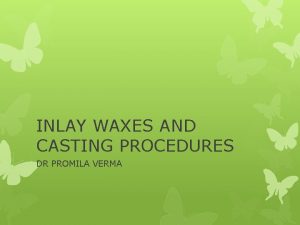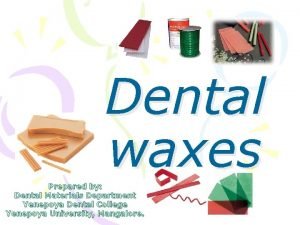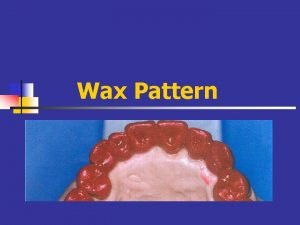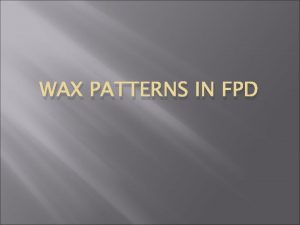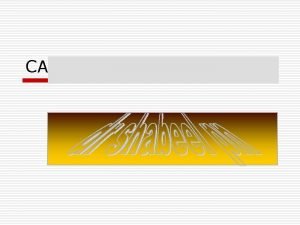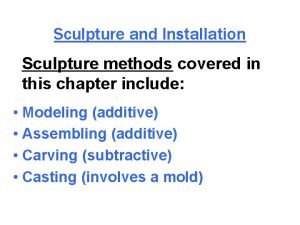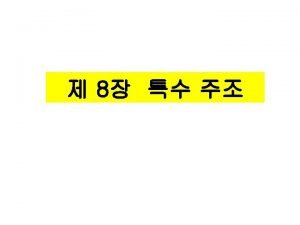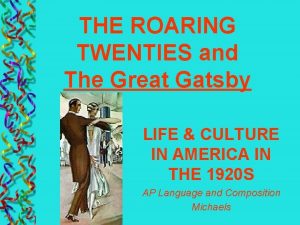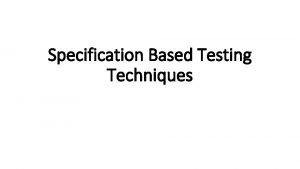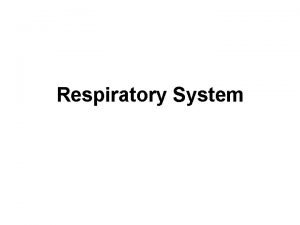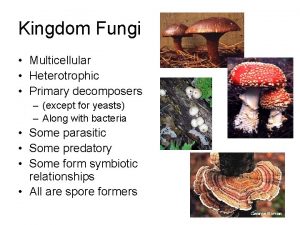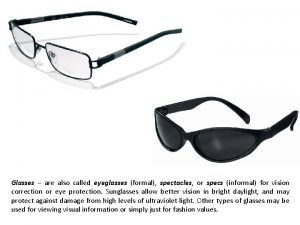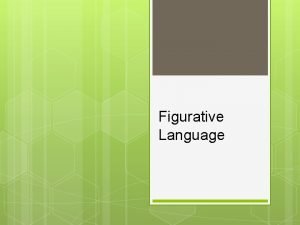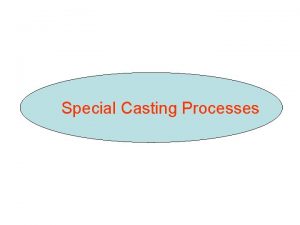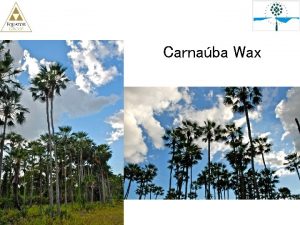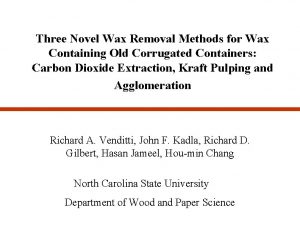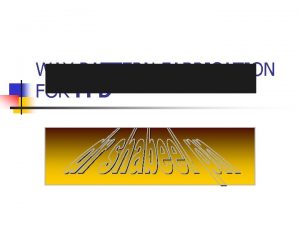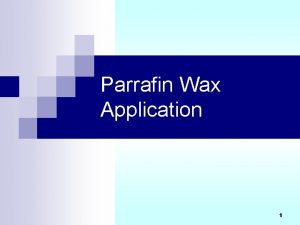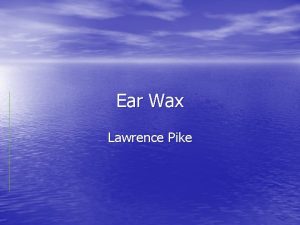Investment Casting Also called Lost Wax Term investment


















- Slides: 18

Investment Casting Also called “Lost Wax” Term investment comes from fact that the pattern is invested with refractory material

History • dates back to 1100 BC ancient Egyptians, Romans • Modern times, before WWII Jewelers and Dentists use the process • WWII principal commercial uses began - aircraft engine parts • most expensive foundry method

1. Molten wax or plastic is injected into a metal die to make the patterns

2. Patterns are attached to gates and risers (tree)

3. Dipped in slurry of refractory material repeatedly • slurry is a - silica flower suspended in a water-ethyl silicate solution

4. Flask is placed around coated wax assembly

5. Investment molding mixture (sand) is poured around patterns filling flask

6. Work table is vibrated to settle mold material around patterns

7. Molds dry for 6 -8 hours • Then wax melted out at 200 -300 deg • burnout and preheating at 1200 to 1900 deg

8. mold is poured statically, with centrifugal action, or vacuum

9. metal solidifies and mold is broken up and gates removed

Adv: over sand casting: • 1. Surface smoothness 2. Close tolerances 3. Minimum machining 4. Capability of producing intricate shapes and sizes

Dis: • 1. Not easily mechanized 2. Requires an individual pattern for each casting made 3. Requires many operations to complete the process

Three additional techniques:

1. Ceramic shell investment casting • formed around pattern by dipping shell into a refractory slurry

2. Frozen mercury • instead of wax • mercury freezes at about 40 deg f. • so use dry ice to keep mercury patterns frozen • mercury is allowed to warm up after being invested in refractory cement • mercury melts out of the mold

3. Precoating is not used • wax patterns are directly invested in the mold material • mixture is placed under vacuum to remove air bubbles next to patterns

Parts made: • • • office equipment gears cams valves ratchets jewelry
 Investment casting lost wax process manufacturer
Investment casting lost wax process manufacturer Sprue pin dental
Sprue pin dental Luke 15:11-35
Luke 15:11-35 Inlay wax definition
Inlay wax definition Mouth temperature wax
Mouth temperature wax Wax pattern fabrication
Wax pattern fabrication Wax pattern in fpd
Wax pattern in fpd Spruing of wax pattern
Spruing of wax pattern The additive process of sculpture includes
The additive process of sculpture includes Slip casting advantages and disadvantages
Slip casting advantages and disadvantages Why is the lost generation called that
Why is the lost generation called that Which search strategy is also called as blind search?
Which search strategy is also called as blind search? Citric acid cycle also called
Citric acid cycle also called Specification-based techniques
Specification-based techniques Parts of the throat
Parts of the throat A workbook is also called a
A workbook is also called a Primary decomposers are
Primary decomposers are Formal spectacles
Formal spectacles It is also called figurative language
It is also called figurative language

